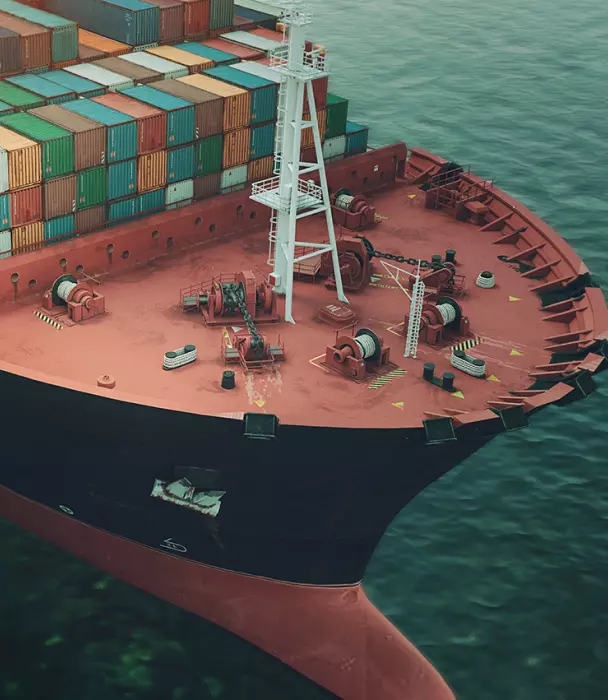In the world of international trade, understanding the rules and mechanisms that govern transactions is crucial for ensuring smooth and successful deals. Two of the most important aspects that every business involved in cross-border trade should be familiar with are Incoterms (International Commercial Terms) and secure payment methods like Letters of Credit (LC). Additionally, other payment methods such as wire transfers, documentary collections, and online payment platforms like PayPal also play significant roles in facilitating international transactions. In this guide, we'll explore these concepts and how they help ensure safe and efficient global trade.
What Are Incoterms? Incoterms, or International Commercial Terms, are a set of rules published by the International Chamber of Commerce (ICC) that define the responsibilities of buyers and sellers in international trade transactions. First introduced in 1936, these terms have been periodically updated to reflect the evolving nature of global trade, with the latest version, Incoterms 2020, providing a standardized language to clarify the division of costs, risks, and responsibilities between the parties involved.
Key Incoterms You Should Know
-
EXW (Ex Works): The seller delivers when they place the goods at the disposal of the buyer at the seller's premises or another named place (e.g., factory, warehouse). The buyer bears all costs and risks involved in taking the goods from there to the desired destination.
-
FOB (Free on Board): The seller is responsible for delivering the goods on board the vessel nominated by the buyer. The risk passes from seller to buyer once the goods are on board, and the buyer is responsible for all costs from that point onward.
-
CIF (Cost, Insurance, and Freight): The seller pays for the cost of goods, insurance, and freight to bring the goods to the port of destination. However, the risk is transferred to the buyer once the goods are on board the vessel in the seller's country.
-
DAP (Delivered at Place): The seller is responsible for delivering the goods to a named place in the buyer’s country, covering all costs and risks until the goods are ready for unloading at the destination.
These terms help prevent misunderstandings by clearly outlining the obligations of both parties, reducing the likelihood of disputes, and ensuring that each party knows their responsibilities in the transaction.
For a complete overview of all Incoterms, visit our page here.
International Payment Methods: Ensuring Safe Transactions
In addition to understanding Incoterms, businesses involved in international trade must also be aware of secure and reliable payment methods. Here are some of the most commonly used payment methods:
Letters of Credit
What is a Letter of Credit? A Letter of Credit (LC) is a financial instrument issued by a bank that guarantees payment to the seller upon the presentation of specific documents that prove the goods have been shipped or services have been provided as agreed. LCs are widely used in international trade because they offer security to both parties:
-
For the Seller: It reduces the risk of non-payment since the issuing bank guarantees payment once the terms of the LC are met.
-
For the Buyer: It ensures that payment will only be made after the seller has complied with the terms and conditions outlined in the LC, such as shipping the goods on time and providing the necessary documentation.
Types of Letters of Credit
-
Revocable and Irrevocable Letters of Credit: While revocable LCs can be altered or canceled by the issuing bank without prior notice to the seller, irrevocable LCs cannot be changed without the consent of all parties involved, providing more security to the seller.
-
Confirmed Letter of Credit: A confirmed LC involves a second bank (usually in the seller’s country) that adds its guarantee to the payment. This is particularly useful when dealing with countries or banks where there is a risk of political or economic instability.
-
Standby Letter of Credit: This acts as a backup payment method, usually intended as a guarantee for the buyer’s performance. It is only drawn upon if the buyer fails to fulfill their contractual obligations.
Wire Transfers
What is a Wire Transfer? Wire transfers are a fast and efficient method for transferring funds electronically from one bank to another. They are commonly used for international payments due to their speed and reliability. However, wire transfers require additional precautions to mitigate risks such as fraud and errors.
Key Considerations for Wire Transfers
-
Speed and Efficiency: Wire transfers are typically completed within a few business days, making them ideal for time-sensitive payments.
-
Security Measures: To mitigate risks, ensure that all bank details are double-checked and that the receiving bank is reputable. It's also advisable to use two-step verification processes where possible.
Documentary Collections
What is a Documentary Collection? Documentary collections involve the seller shipping the goods and presenting the shipping documents to a bank for the collection of payment. The bank then forwards the documents to the buyer's bank, which only releases them to the buyer upon payment or acceptance of a bill of exchange. This method is less secure than a Letter of Credit but is often used when the parties have a long-standing relationship.
Types of Documentary Collections
-
Documents Against Payment (D/P): The bank releases the documents to the buyer only upon payment.
-
Documents Against Acceptance (D/A): The documents are released to the buyer once they accept a bill of exchange, agreeing to pay at a later date.
Benefits and Risks of Documentary Collections
-
Benefits: Lower cost compared to Letters of Credit and useful for established trading relationships.
-
Risks: The seller bears more risk compared to LCs, as the buyer may refuse to pay or accept the documents.
PayPal and Other Online Payment Platforms
What are Online Payment Platforms? Platforms like PayPal, Stripe, and others offer convenient and secure payment options, particularly for smaller transactions. These platforms are popular for e-commerce and small businesses due to their ease of use and global reach.
Considerations for Using Online Payment Platforms
-
Convenience: These platforms are easy to set up and use, with funds typically available quickly.
-
Security: They offer robust security features, including buyer protection and fraud detection.
-
Limitations: Online payment platforms may have transaction limits, higher fees for international transactions, and might not be suitable for large deals.
Balancing Security and Efficiency
When choosing a payment method, consider the following factors:
-
Risk tolerance: Assess your risk appetite and select a method that aligns with your comfort level.
-
Transaction size: Larger transactions may require more secure payment methods like LCs.
-
Time constraints: Consider the time required for each payment method and choose one that meets your deadlines.
Understanding Incoterms and the various international payment methods available is essential for anyone involved in global trade. By familiarizing yourself with these tools and strategies, you can navigate the complexities of international transactions with confidence, ensuring that your business operates smoothly and securely across borders.
For an overview of the Incoterms and a detailed breakdown of responsibilities and risk transfer across different Incoterms, visit the Incoterms Responsibility Overview page.
* Referance: International Chamber of Commerce (ICC): https://iccwbo.org


